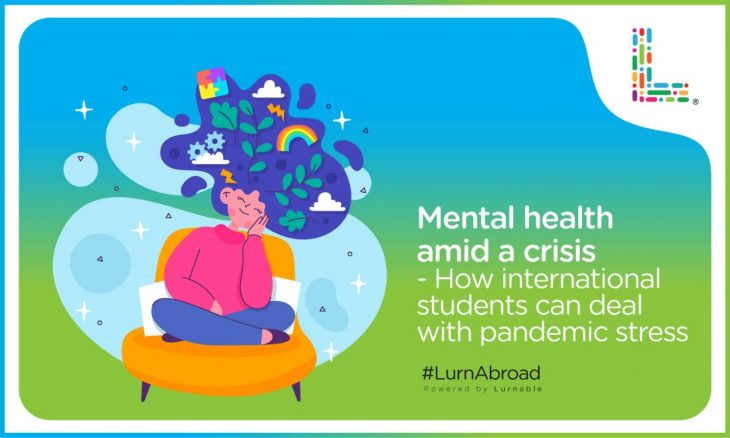International education is a challenge in itself as you have to deal with more than you can handle. The admission anxiety is daunting enough, and adapting to life overseas can make the challenge even bigger. Money woes, visa rules, work restrictions, cultural gaps, exam stress, and more- the list of anxiety triggers literally seems to be endless. Even worse, the pandemic has aggravated the stress for international students. Let us explain the implications of the situation for international students and how they can deal with the concern.
STUDENT STRESS
The worst of the pandemic seems to be the over as vaccine rollouts are in full swing in all study abroad destinations. Many countries have eased travel restrictions and quarantine guidelines for international students. But there is still chaos, and it is easy to lose your peace in new and unexpected ways. You may feel stressed due to disruption of daily routines, apprehensions for loved ones back home, social isolation, and changing guidelines in universities and countries.
Things can be a tad worse if you are in a new country for the first time because making new friends and getting social is tougher than ever. You will probably feel homesick due to loneliness and social isolation. Problems like depression, insomnia, loss of appetite, mood swings, and poor concentration are common for students who move overseas. Conversely, the ones opting for online learning can experience similar woes. These include FOMO (fear of missing out), screen fatigue, or distractions at home.
DEALING WITH THE ANXIETY
The first thing you need to do is to realise that these feelings are normal. You will probably find the study abroad experience very different from what you expected it to be. Right now, there is no making friends, no games, no social events, and no internships, as everything seems to be on hold. It is normal to feel annoyed, upset, or angry, but you must have a plan to deal with these feelings.
PAUSE AND REFLECT
The best way to start is to pause and reflect, taking stock of things as they are. Ask relevant questions, such as, would you want to skip a term or does remote or on-campus learning seem to be the right alternative. Utilize the downtime for doing productive things. Connect with fellow students virtually and forge friendships. Staying in touch with family back home also helps.
CONTROL NEGATIVE THOUGHTS
When you are stressed, your thoughts become unbalanced. There are chances of jumping to conclusions or assuming that the worst-case scenario will happen. You may even end up believing those negative thoughts and becoming even more distressed. Controlling your thoughts is the best way to handle stress. You can start with deep breathing and meditation as they help you purge negative thoughts and gets positive energy flowing.
SEEK SUPPORT
Recognise your need for support and get help from wherever possible. It is vital to understand what the new normal is. You must also know how it can impact your mental health, physical well-being, job, and social relationships. Once you have a fair idea of the implications, it becomes easier to ask for help. You can seek it from different places- your family, friends, teachers, and even a therapist. Never shy away from asking for help because people are more than willing to do it.
AVAIL OF ON-CAMPUS AND ONLINE RESOURCES
When it comes to seeking support, you can also avail on-campus and online resources. Universities employ mental health counselors and social workers to assist students, so use the opportunity to your advantage during this crisis. Those learning remotely may feel isolated and crave in-person interactions. You can recreate the on-campus college experience through a weekly Zoom coffee break.
INVEST IN SELF-CARE
Another measure that international students can embrace during the pandemic is to invest in self-care. It is an ongoing necessity because you need to go the extra mile with your physical and emotional needs right now. Follow some simple rules, and you can handle the situation better. Nutritious eating, consistent exercise, and adequate sleep are the cornerstones of good mental health. Managing alcohol and drug intake is crucial. You can do a little more by writing a journal, taking tech breaks, and exploring the campus while following social distancing guidelines.
KEEP A SCHEDULE
Keeping a schedule is a good way to manage your stress levels. Start by creating a daily to-do list and making conscious efforts to adhere to it. Have deadlines for tasks so that you can stay productive and stress-free. It also helps you keep your motivation levels going, as it is important for sanity amid chaos. Squeeze in time for breaks because they curb anxiety effectively. Indulge in activities you enjoy, and you will feel happy and relaxed.
Finally, remember that this too shall pass. You only need to hold on and get through, and things will take a turn for the better!

If you are considering studying abroad why don’t you discuss your prospects and opportunities with experts at Lurnable’s dedicated study abroad counselling division LurnPathways?





